By Uran Kalakulla
Part forty-three
Nazism and communism
Memorie.al / Nazism lasted 12 years, while Stalinism lasted twice as long. In addition to many common characteristics, there are many differences between them. The hypocrisy and demagogy of Stalinism was of a more subtle nature, which was not based on a program that was openly barbaric, like Hitler’s, but on a socialist, progressive, scientific and popular ideology, in the eyes of the workers; an ideology that was like a convenient and comfortable curtain to lie to the working class, to lull the sharpness of intellectuals and rivals in the struggle for power.
One of the consequences of this peculiarity of Stalinism is that the entire Soviet people, its best, capable, hardworking and honest representatives, suffered the most terrible blow. At least 10-15 million Soviets lost their lives in the torture chambers of the KGB, martyred or executed, as well as in the gulag camps and others like them, camps where it was forbidden to correspond (in fact, they were prototypes of the Nazi death camps); in the mines in the ice of Norilsk and Vorkuta, where people died from cold, hunger, from crushing labor in countless construction sites, in the exploitation of forests, in the opening of canals and during transportation in leaded wagons, or in the flooded barns of the death ships.
Continued from the previous issue
Even among spies, you could distinguish several subcategories. The first consisted of those types of “wild animals” who, like homosexuals, were almost born with a predisposition, if not physiological or anatomical, at least spiritual, psychological. Of course, at the beginning of their lives, they were like those rodents equipped with long, strong whiskers, which served as antennas or radars, both to help them smell and to smell danger. Rats are animals in this category, if not cats or dogs, especially hunting ones.
In the best case, military or espionage spies develop this predisposition further, to perfection. Thus, I have known a couple of guys who, although old at that time, when I was still young, had a long experience as spies during the time of Zog, fascism and, of course, communism, no matter how hard the latter had thrown them in prison and had not punished them lightly. I remember in particular one, whom I met in room no. 2 of the old prison in Tirana, where they had just taken me after leaving the dungeon or death chamber, after being pardoned.
They called him Iljaz Korça. And the horror was that he was the son of a man highly respected for his knowledge, morality and patriotism: Hafiz Ali Korça! This case proves the well-known popular saying: “From thorns comes a rose, and from roses – a thorn”! Thus, from his father, a rose, Iljaz had come a thorn. While the other, although he also descended from a noble, brave and patriotic father, also a famous friend and fighter with Sali Butka, had started the dirty trade of espionage in the prison of Bari, where the Italians, after occupying the country in ’39, had imprisoned him as an “anti-fascist”.
The second subcategory of spies consisted mainly of cowards, who apparently (as I have said somewhere before) had “bare their pants” in the investigator, had surrendered to the investigator’s hook and the latter, after the sentence, had passed the baton to the prison or prison camp operative. Thus, these were weak people, who lacked, so to speak, any “immunity” in their conscience and who had compassion, as well as boundless love for their own lives. For the motto of their very being was: “To live by any means, even by dragging themselves in the dung of life, even worse than a disgusting reptile”!
If you look at it correctly, with a kind of impartiality, I can say that these elements were exactly victims of violence, of pressure exerted on them, both during the investigation and during the time of imprisonment. Another characteristic of these types was that they, as a rule, were not very provocative, they did not track their “prey”, but waited patiently until it approached them, to then grab it with their “claws” or, whatever the hell they call those crab claws. So these had not, so to speak, volunteered to enter the cove of espionage, but had been forced there, as if by force, hunched over in their underwear from fear. And I think that this category of prison spies constituted the majority. Of course, these too had once had a clear conscience, but violence had soiled and destroyed them.
And if you tried to go deep into that conscience, you might even find here and there some faint spark of light, or some remnant still standing, of some fragment of their structure of conscience, collapsed by violence. And you, seeing such destruction, I believe you would also feel pity, and you would almost be able to pity these unfortunate beings who, from being people, the “red devil”, with his magical tricks, had reduced them to a low zoological level, to that of “rodents”, or more precisely “dungeon rats”.
Of course, for the above reasons, it was these same ones who felt great pity for the destruction they suffered, a constant spiritual pain, as happens to that girl, once pure and naive, who suffered sexual violence and was forced by violence to become a prostitute. In fact, in cases of revolts in prison, along with the brave, these sub-beings would also rise up, as if to take revenge for the violation that had been done to their personality. This is how, for example, it happened in the great classic revolt of Spaç, now quite well known in our country.
The third category of spies included, in my opinion, those who had, from the moment they were conceived as human beings (with the sexual contact of their parents), almost no positive predisposition. On the contrary, they, I have the impression, belong to the “born criminal” of Lombroso, the famous Italian criminologist, whose theories, as is known, almost became the norm in investigation and trial in European and American schools of jurisprudence, especially in the first half of the 20th century. These types were “multi-talented” in the field of evil, just like the chemical element, sulfur.
Thus they were spies, thieves, homosexuals, troublemakers and troublemakers, intriguers, unbridled egoists, arrogant, ignorant, callous, banal, etc. In a word, they were something like wild boars, which would kill anyone at the tip of their noses. I remember some of them, in the prison camp, but also in the Burrel prison. Since the first dungeons of the investigation, I had the bad luck to know some of these guys. One guy in this category was Sali N., originally from the South, I don’t think from the Gjirokastra side. Before prison, he had worked as a teacher in a village school in Labëria, I don’t know exactly where, but there he had taken the souls of the students and behaved with them, like a real tyrant, a butcher, a kind of Dickens’s Faxhin. I also don’t know why he had ended up in prison. And he had become a declared spy.
And everyone knew him as such. But precisely for this reason, he was a “burnt card” for the command, which is why they never gave him any “post”, like brigadier, normist, and depot officer and so on, but they had left him like the rest of us, only with a pickaxe. And the dog worked, because no one came to the prison door; it seems that his family had also abandoned him, so he worked to earn some money, for a little sugar and oil, for a few pounds of pasta, and for cigarettes. Sala was also a “polyvalent”: spy, thief and pedophile. So a kind of “Captain” with three strands of pasta on his shoulders.
The beautiful thing is that not all the prisoners made fun of Sala, but even the policemen themselves seemed to make fun of him and had no part in it. I saw him following the operative, worse than a dog, licking his master. But he smiled and, as if mocking, chased him away. It seems that, in those cases, Sala would sometimes denounce a convict, sometimes ask for a reward for the work he had just done. And the operative, who did not care about the reward, but always left him in the lurch, after leaving him, would write in his pocket notebook and move on, starting, as a popular saying goes: “When you don’t have chickens, you’ll eat crows too”! Thus, in a way, Sali N. also made his “modest contribution” to the construction of socialism.
Faik K., it seems to me, was a lab. It was a washed-out face, like those mannequins in the shop windows, but certainly without the fictitious charm of those plasters statues. And he kept himself clean, almost to the point of obsession. His bowl, which he washed and rubbed several times a day, shone with beauty, as if it had just come out of the factory. His entire spiritual world seemed to have ended up in that bowl, which was like all our bowls or drawers, a miserable annex to the command’s languishing cauldron. They said that he had been a gendarme and that this was his second prison. They even said that in the first prison, he had fared well, like most, but in the second, he had completely gone mad, had surrendered completely. That was how he had become a spy. But since he too had been placed in Sali N.’s category, often becoming the object of ridicule and ridicule, Faik Mavris had completely lost his cool, and often the policemen would push him and spit on him, because they said that Faik reported to the command, not only the prisoners, but also the policemen themselves.
Ymer N., I found the storekeeper when I first came out of prison. He was over sixty years old at the time. He was from a well-known family of old Tirana merchants, an honest family. But now Ymer had fallen badly and had become a spy for the command. As a reward, they had made him the prison storekeeper, where our personal clothes and food were kept. They said that Ymeri took “tax” from our bags, and even practiced the trade of a merchant there, with the mats that the convicts left when they were released or transferred to the camps, mats that he sold at a high price to the new prisoners, so that they could protect themselves a little from the dampness of the prison cement.
Ymeri had even been removed from the old people’s room, where he should have normally been in that prison, and had been put in one of the isolation rooms, precisely in Bedri Spahiu’s room (where he had been with Tuk Jakova, before the latter died), and where Pjetër Arbnori was also put there. It was said that Ymeri had been put in with Bedriu, as a guard or to “dismantle” the former close associate of Enver Hoxha! Oh, how many such people I met during my long imprisonment. Even a single book, like this one, would not be enough for them. That’s why I’ll stop there.
The thieves were nothing more than ordinary people who had either been transferred from ordinary prison to us politicians, with a second and only symbolic sentence as an “enemy”, or had been wrongly convicted from the beginning as politicians, because they had expressed some occasional dissatisfaction somewhere and had known how to hide their “talent” as thieves. This subcategory did not necessarily consist of spies, homosexuals or quarrelsome people. These were simply thieves or thieves of the lower category, which Shkodra calls very nicely and briefly; “brac”. In a word, these were concerned with “lightening” your bag of food or clothes: from panties, socks, cigarette packs, sugar, cheese, etc. And when they also became gamblers, the first victims of their “braci” actions were cigarette packs, which in prisons and prison camps took the place of lek, which they were not even allowed to see with their own eyes.
Of course, these actions of “lightening” the sacks were not carried out without the cooperation of the warehouseman, with whom they had created solidarity or a common “union”. In this, the thieves who had risen in the category of the trade came out on top, gaining in this regard that “seventh”, that is, more qualified workers, very close to the masters. And these were the robbers. The robbers were legal “thieves”. They forced the convicts to come to the warehouse and “lighten” their sacks themselves, to then pass the goods on to these masters in the category. The reason?
The threat of beatings or even murder if they did not do so. Because, if the robbed were usually wise, cowardly, obedient and physically weak people, the robbers were “great braves”, with knives in their pockets, physically strong, big, tall and with gluttonous bellies like sharks. Thus, these “cubas” considered themselves the “aristocracy” of the camp or prison and, on the other hand, they posed as great heroes, as the cream of anti-communism, as prominent politicians, almost as theorists, even though they didn’t even know how to write at all and their greatest amusement was usually to gamble or to get close to “the pedophiles”, entering, at one time or another, openly or secretly, into the “faggots’ syndicate”!
It was completely useless if someone tried to sue them in command. Because often these robbers were in the “syndication” with the command, that is, with the operative himself. Another “polyvalence”, this! The last subcategory of this gallery, or painful anatomy, consisted of brawlers or brawlers, who were often mentally ill or captors, who had decided to show their “bravery” in prison, with the physically weaker, the wisest, the most polite, the true gentlemen, the true politicians.
These, as a rule, were also connected either directly to the command (the operative) or indirectly. I say indirectly because it could be true that they did not act on the instructions or instigation of the command, but by causing trouble and, by getting on the backs of serious and honest people, they played, willy-nilly, the game of the command. Why didn’t the command want to make life as difficult as possible for the politicians, the determined and far-sighted “enemies”, so that the command did not have even the slightest illusion that these convicts would degenerate like the others and that they were for the command and the regime, always “dangerous enemies”, today and tomorrow, not at all safe for the Party and the government?
The quarrels in prison, the fights, and the beatings were a drama in themselves, very disturbing, shocking. They would increase the boredom, exhaust patience, weaken the will, and corrupt the soul. And with them the prison would become doubly difficult. The cause of these quarrels could be something very small, insignificant, a trifle. We are talking about a harmless gesture that was taken for teasing, a simple joke that was taken as an insult or a bitter insinuation, even a vain look that was taken as a challenge. And then the “brave ones” would rage like the bulls of Spain and get angry, sometimes going as far as the crime of murder.
In this midst, the talkers and especially the intriguers often came into play. The latter were in fact the most dangerous poison of the prison, because with their snake tongue, they would sometimes shake a prison or an entire camp. And it took a lot of patience, prudence, effort and fatigue to neutralize the poisonous effect of the intrigue and the strife it caused.
And these “snakes” did not want to understand that their craft from Jago was grist for the mill of the command. Therefore, I have included these in the category of prison villains, despite the fact that they may not have been thieves, homosexuals, or outright spies, and they had in their souls a single valence, cooked with the very disgusting and dangerous poison of intrigue.
The suicide of the young philosopher, Mustafa Bajraktari
It is quite rare in life to meet and get to know a super-intellectual, who does the Albanian people an honor, as it was my chance to meet and be close to a young man from the Burrel prison, for years. They called him Mustafa Bajraktari. And as I sit and think about him with deep pain in my soul, with my already old eyes, which are ready to shed tears, along with the pain I also feel a concern, almost like a guilt, if I will be able to give even a little portrait of that rare young man, ordinary in appearance, but with a spiritual world so deep and broad and with a mind so powerful that, often, it surprised me as much as it excited me.
Who was Mustafa Bajraktari?
A young man, around twenty, tall, but thin from overeating, with a handsome face like that of a classical statue, with two beautiful eyes, always almost dreamy, where a spark of deep thought often sparkled and where, from time to time, the shadow of a great sadness fell, like the light and shadow of the sky on an autumn day that is ending. Like all the chosen people of the world of deep thought, where true knowledge or divine relationship is conceived, that is, of the world of philosophers, scientists and religious saints, Mustafa Bajraktari preferred – (as much as was possible in the din of the narrow prison shacks, where people were squeezed in by the policeman’s boots like sardines in a tin can) – to withdraw into his own corner, in silence, because he was satisfied with internal conversation, without words, without noise, exactly the kind of conversation that scholars call differently, perhaps more accurately, “ventriloquism”.
He did, like everyone else, what he was forced to do, with grace and without grace: to get up and answer “here” when the prison guard officer made the roll call three times a day; to eat and drink; to wash and wash; to answer his friends briefly, as they asked him or when they spoke to him. He would gather in that miserable corner of the straw mattress, lay on the cold cement, covered with an old and worn military blanket, with his gaze fixed on some philosophy book or directed at some corner of the wall and quietly grind his thoughts.
The other young men in the prison cells would even make noise when they spoke loudly. From time to time they would even quarrel when they debated. Some would not even control their nerves and fight with their roommate. These were understandable things in that dirty strait called prison, in that gloomy environment. These young people, instead of being on the benches of universities or in the jobs they liked, were forced to spend the best years of their youth in that filthy cesspool called prison, especially a communist prison, where the human being was valued less than cattle. But Mustafa Bajraktari was mainly concerned with his inner world, with books and, from time to time, with a conversation with someone who came even slightly close to the speculative knowledge of philosophy.
We Albanians often say that our dog has not produced any real philosophers, who can create theories or, to a lesser extent, systems. This may be true, but did the foreign invaders leave us alone, to let the writings and documents of Illyrian thinkers, Albanian theologians or humanist scholars survive, as much and as they should? Why don’t the foreign, savage, barbaric and cruel invaders leave us alone to live peacefully in these lands we have inherited since prehistoric times, so that we too can cultivate, peacefully and undisturbed, our original Illyrian-Arbër culture? Memorie.al




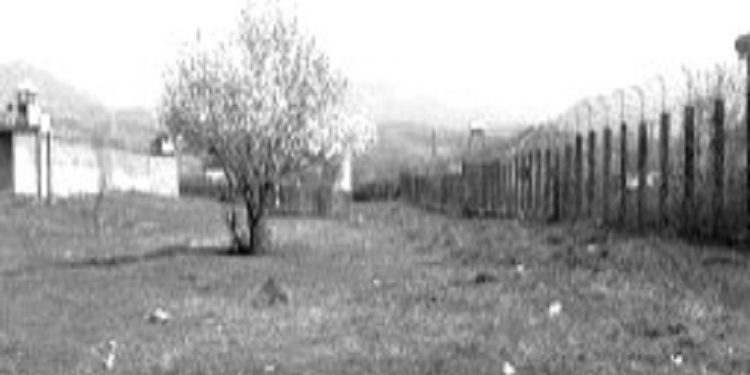
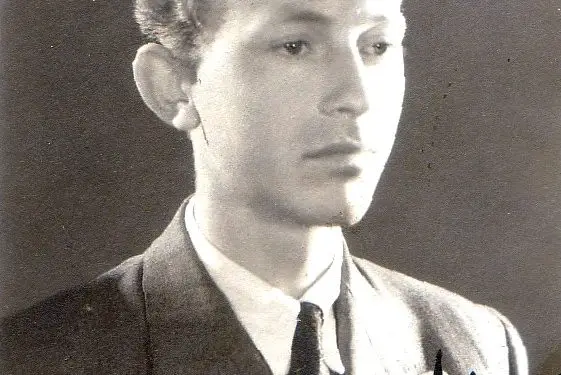
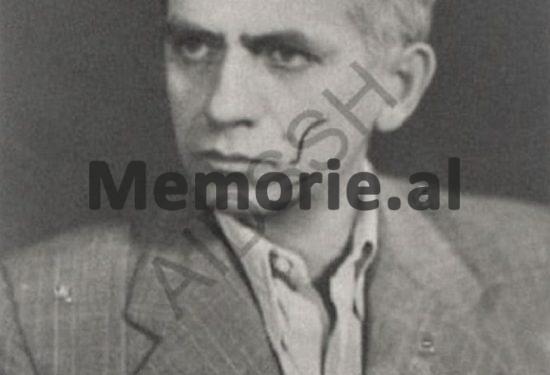

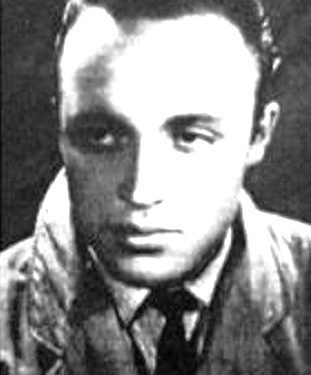
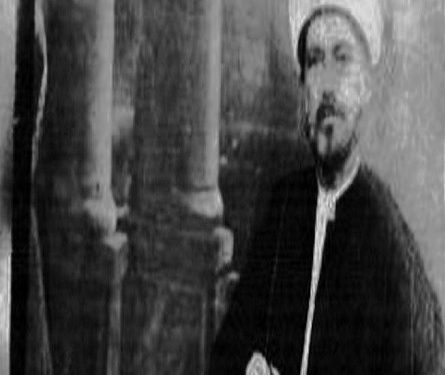
![“The ensemble, led by saxophonist M. Murthi, violinist M. Tare, [with] S. Reka on accordion and piano, [and] saxophonist S. Selmani, were…”/ The unknown history of the “Dajti” orchestra during the communist regime.](https://memorie.al/wp-content/uploads/2026/02/admin-ajax-3-350x250.jpg)
![“In an attempt to rescue one another, 10 workers were poisoned, but besides the brigadier, [another] 6 also died…”/ The secret document of June 11, 1979, is revealed, regarding the deaths of 6 employees at the Metallurgy Plant.](https://memorie.al/wp-content/uploads/2026/02/maxresdefault-350x250.jpg)




